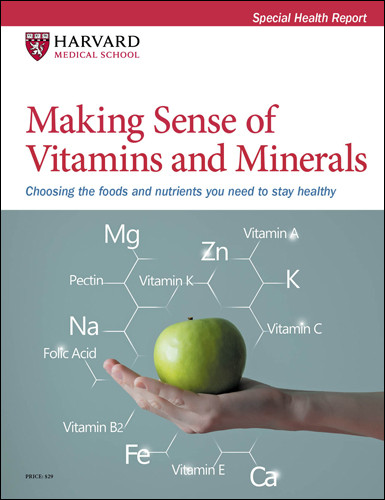Should I take a daily multivitamin?
On call

Q. I am in my late 60s, eat what I think is a well-balanced diet, and consider myself to be healthy. Should I take a daily multivitamin? What are the pros and cons? Are there individual supplements you recommend?
A. First, let's consider standard multivitamin-mineral (MVM) supplements. Standard MVMs contain the required daily minimum levels of the essential vitamins and minerals. In comparison, most individual supplements are loaded with much higher micronutrient doses. For example, a vitamin D supplement might contain two to five times the recommended dose. For vitamin B12 products, the typical daily dose is 1,000 micrograms, which is more than 400 times higher than the Recommended Dietary Allowance.
Most studies have not shown a definitive health benefit of a daily MVM supplement for men like you. However, a recent clinical trial, published online Jan. 18, 2024, by The American Journal of Clinical Nutrition, suggests taking MVMs may help delay cognitive decline in older adults.
For the trial, 573 participants were given baseline cognitive and memory tests. Half were given one standard MVM daily, and the other half took a placebo. Both groups were unaware of which one they were given. The study participants were retested again after two years. The people who took the MVM scored slightly higher on the memory and cognitive tests than those who took the placebo.
Before this study, I supported anyone who wanted to take a standard daily MVM, although I did not promote its use for all my patients. Although most people with sufficient calorie and protein intake get enough micronutrients from their diet, an MVM provides some dietary insurance.
However, this new evidence has tilted my opinion in favor of a daily MVM for everyone. It's relatively inexpensive and quite safe. Men should look for an MVM that does not contain iron unless specifically recommended by their doctor.
Regarding other supplements, I recommend that adults, especially older adults, take an extra 1,000 international units (IU) of vitamin D daily or every other day (but avoid mega doses). The recommended daily intake of vitamin D for adults ages 50 to 70 is 600 IU and 800 IU for people older than age 70. Standard MVMs have only 400 IU, and getting enough vitamin D from foods can be challenging. Also, many people avoid vitamin D-producing sunlight to reduce their risk of skin cancer.
The grocery and drugstore shelves are full of other supplements, which are heavily promoted for all kinds of health benefits, most of which have no scientific evidence to support their use. It's always best to check with the pharmacist or doctor before taking any individual supplement.
Image: © D-Keine/Getty Images
About the Author

Howard E. LeWine, MD, Chief Medical Editor, Harvard Health Publishing; Editorial Advisory Board Member, Harvard Health Publishing
Disclaimer:
As a service to our readers, Harvard Health Publishing provides access to our library of archived content. Please note the date of last review or update on all articles.
No content on this site, regardless of date, should ever be used as a substitute for direct medical advice from your doctor or other qualified clinician.
















